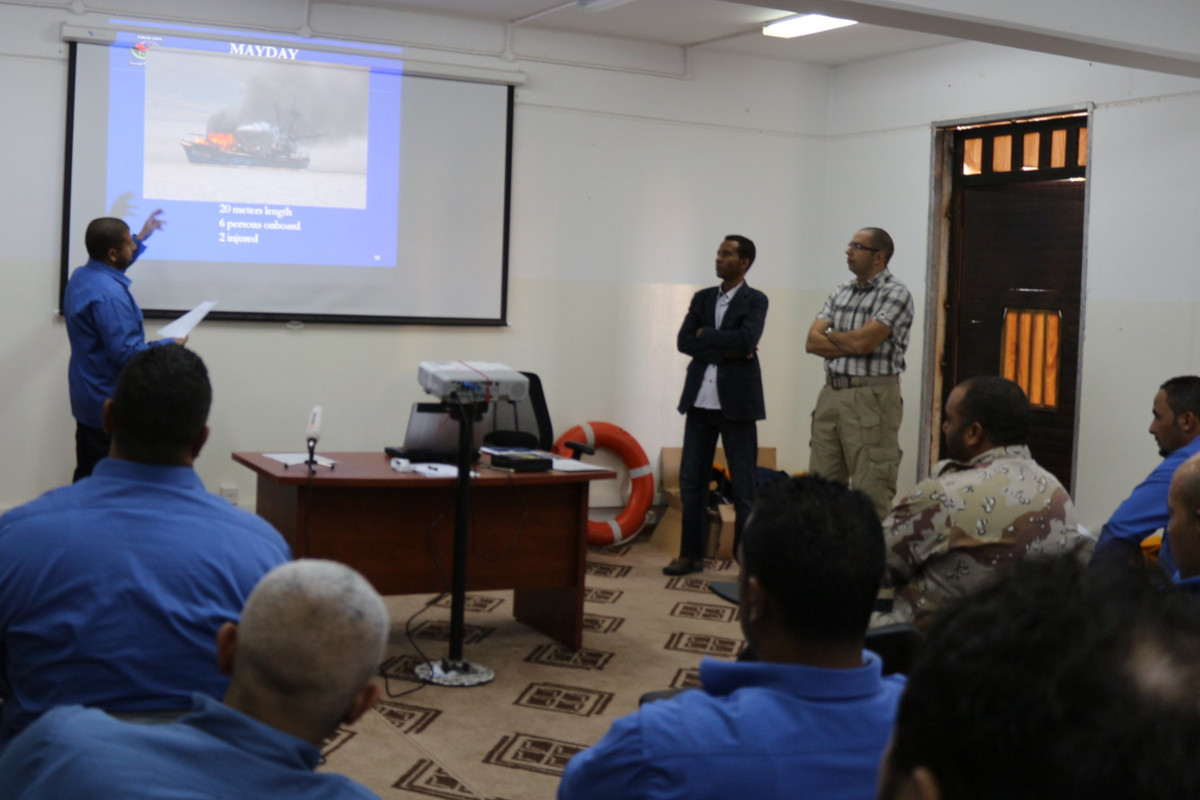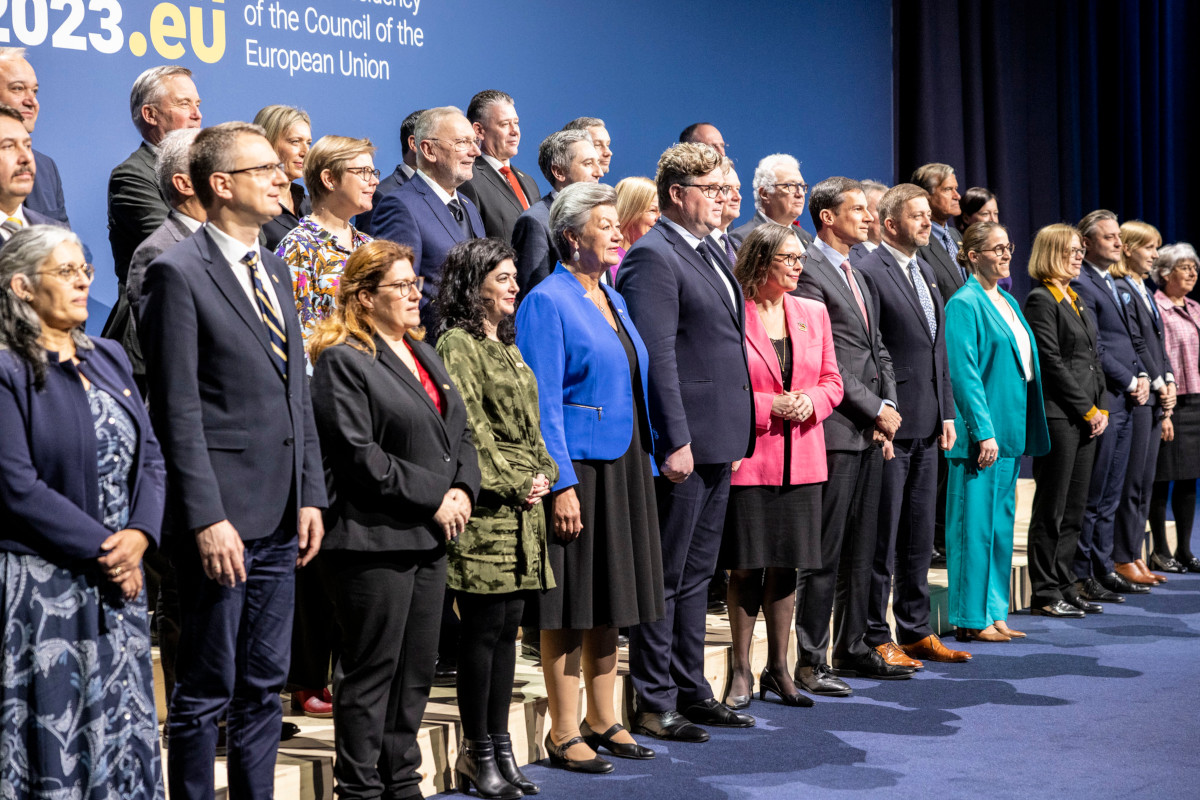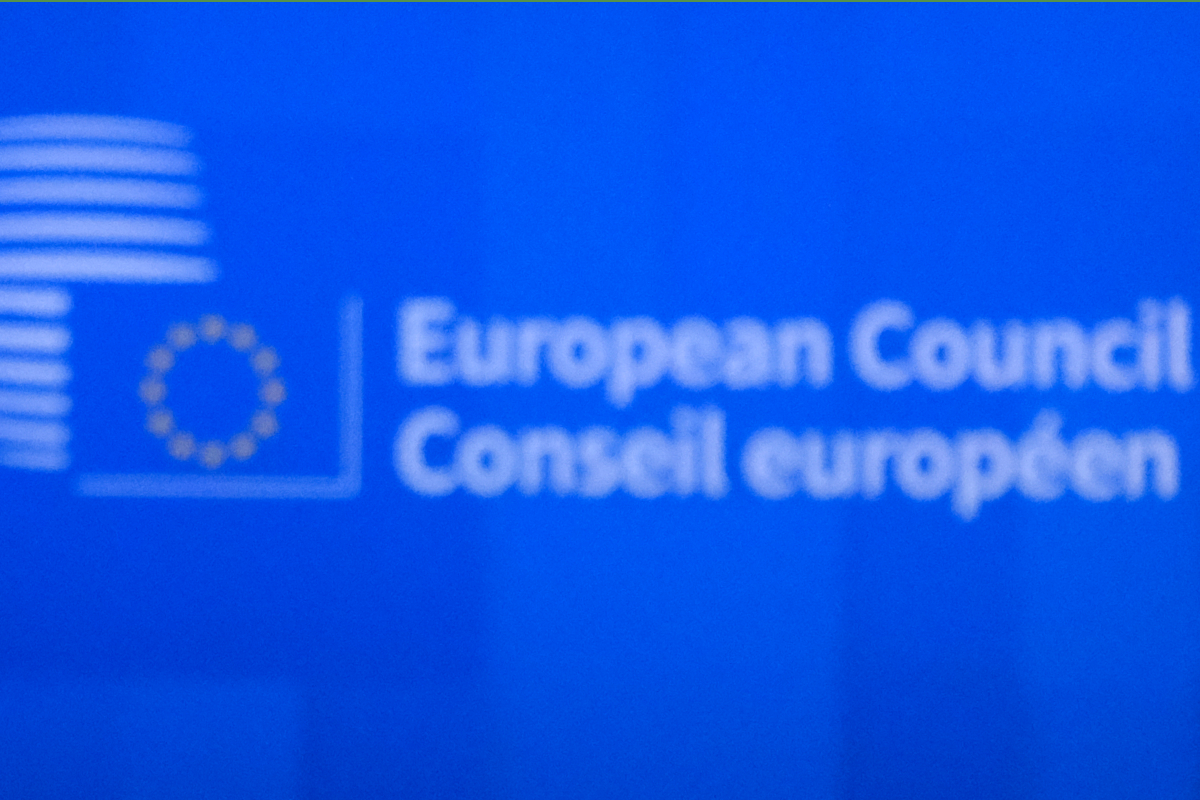EU border mission in Libya gets revamp
Topic
Country/Region
23 June 2023
The EU Border Assistance Mission (EUBAM) in Libya is about to receive an update to its tasks. References to supporting institutional reform and cooperation with the UN Support Mission in Libya are to be removed from its mandate. The current budget is to be extended by three months, pending a decision by the Council on funding for the next two years.
Support our work: become a Friend of Statewatch from as little as £1/€1 per month.

Image: European External Action Service, CC BY-NC-ND 2.0
The changes are included in a Council Decision (pdf) that is due to receive formal from COREPER (the Committee of Permanent Representatives) soon.
The current budget and timeframe - €84,850,000 between 1 July 2021 and 30 June 2023 - will now end on 30 September 2023, with no change to the budget until then.
A future Council Decision will determine the budget for the project between 1 October 2023 and 30 June 2025.
The mission's tasks are to receive a substantial overhaul, as demonstrated in the table below.
It will now include specific references to "the fight against cross-border crime, including human trafficking and migrant smuggling."
There will also be a reference to "international standards in these areas" - though no specific reference to international law.
|
Forthcoming amendments |
|
|
Article 3 - Tasks |
Article 3 - Tasks |
|
1. In order to achieve the objective set out in Article 2(1), EUBAM Libya shall:
|
1. In order to achieve the objective set out in Article 2, EUBAM Libya shall:
|
|
(a) support the development of a broader border management framework, notably through the development of a White Paper on an Integrated Border Management Strategy, including a maritime security strategy, by providing capacity delivery and implementing concrete projects for the Libyan Maritime Law Enforcement Agencies and the Libyan Land Border Agencies while also assessing the possibilities of expanding activities outside of the capital, including on the border with Tunisia and in the south of the country; |
(a) support the Libyan authorities and agencies responsible for border management, including in facilitating intra-agency, inter-agency and international cooperation as guiding principles of integrated border management; |
|
(b) support capacity building and strategic planning, including regarding the police, within the Ministry of Interior on law enforcement, including, where feasible, assistance to the United Nations Support Mission in Libya (UNSMIL) in its police capacity building efforts, and support coordination functions among relevant Libyan authorities in fighting organised crime and terrorism; |
(b) support the Libyan authorities and agencies involved in the fight against cross-border crime, including human trafficking and migrant smuggling, and against terrorism, in line with international standards in these areas; |
|
(c) support institutional reform and provide strategic planning assistance for the Ministry of Justice and provide broader capacity building for relevant criminal justice actors including the Attorney General's Office and the High Judicial Institute; |
(c) facilitate and support cooperation and interoperability of the Libyan authorities and agencies in these thematic areas in order to help them mitigate possible gaps or overlaps in border management, address cross-border crime, including human trafficking and migrant smuggling, and counter terrorism; |
|
(d) support strategic coordination between donors and project implementation in response to Libyan needs in the fields of border management, law enforcement and criminal justice. |
(d) provide specific needs assessments and develop related projects in support to the Mission’s operational activities. |
|
1a. Should a formal request be made by the United Nations or the Libyan authorities, the Council shall decide, on the basis of a dedicated strategic analysis presented by the European External Action Service, on the support to be provided by EUBAM Libya in furtherance of the objective set out in Article 2(2). |
1a. In carrying out its tasks, EUBAM Libya shall provide technical advice, capacity building activities at the operational and technical levels and projects, complemented as appropriate and on a case-by-case basis with specialised training. EUBAM Libya shall furthermore provide strategic advice where requested by Libyan authorities.” |
Documentation
- COUNCIL DECISION amending Decision 2013/233/CFSP on the European Union Integrated Border Management Assistance Mission in Libya (EUBAM Libya) (Council doc. 9940/23, LIMITE, 20 June 2023, pdf)
Our work is only possible with your support.
Become a Friend of Statewatch from as little as £1/€1 per month.
Further reading

Externalisation of migration control: from the 1990s to the present
A talk given by Statewatch researcher Yasha Maccanico at the TransBorder Camp in Nantes, July 2022.

Border externalisation needs “whole-of-government approach” says Swedish Presidency
The Swedish Council Presidency has reiterated the longstanding call for “a true whole-of-government approach and sustained engagement” at all levels to implement EU plans to externalise migration and border control, in a document setting out plans to follow up on European Council conclusions agreed in February.

UN migration data kept from the public but delivered to EU border externalisation body
In January, representatives of the International Organization for Migration (IOM) and UN refugee agency (UNHCR) gave presentations to a new EU body launched last year to propel the externalisation of migration policies. The presentations included multiple facts and figures that are no longer made public, and the UNHCR called for the UNHCR and EU member states to align their communications strategies, “without concealing challenges.”
Spotted an error? If you've spotted a problem with this page, just click once to let us know.

